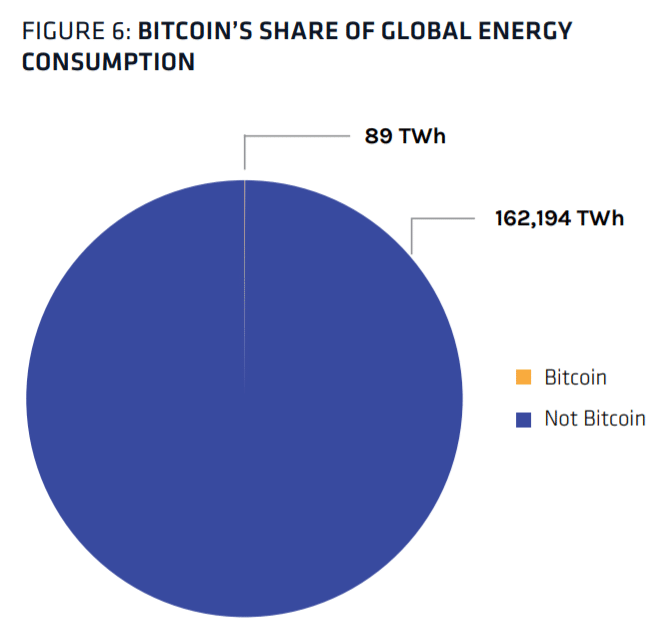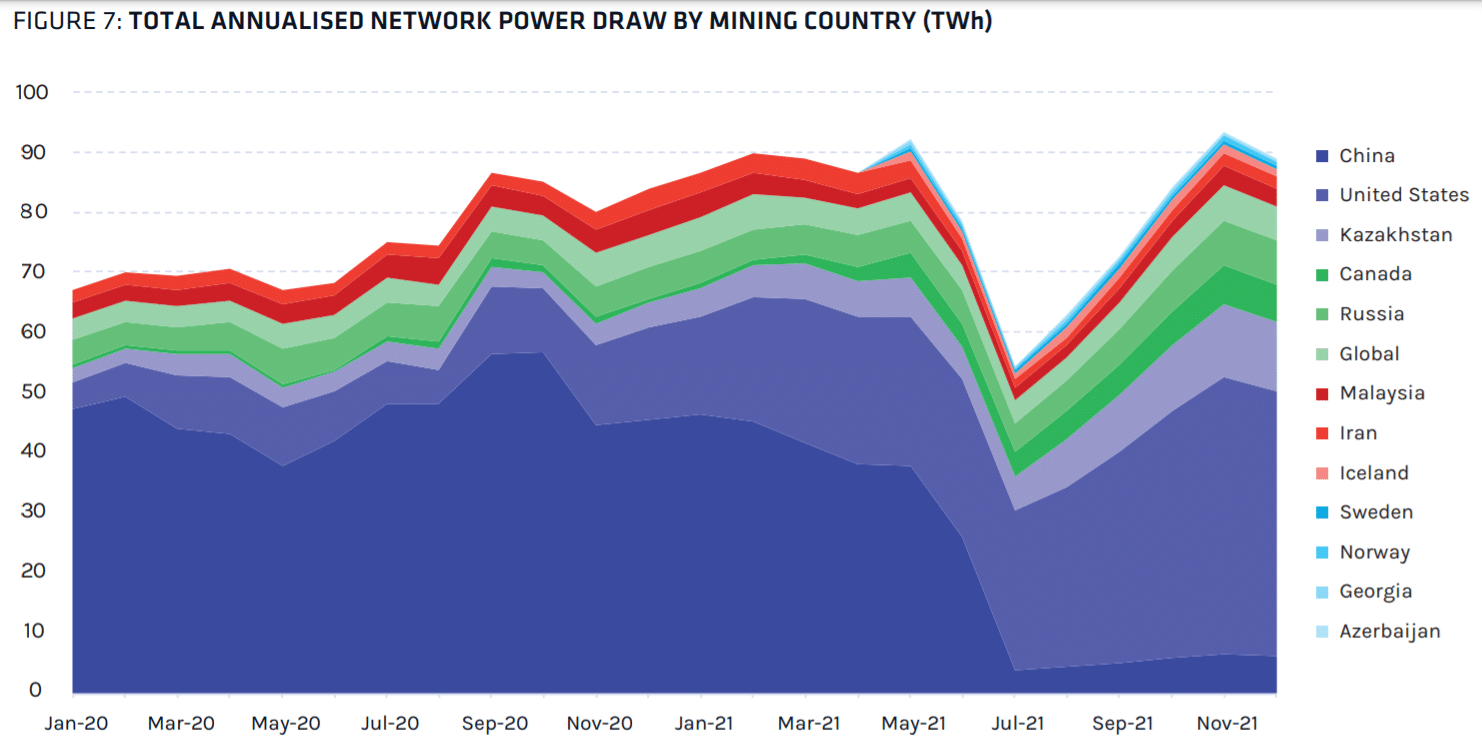A report from CoinShares looks at the state of the Bitcoin (BTC) mining network. It indicates that the carbon emissions related to the production of the largest cryptocurrency would represent 0.08% of total emissions worldwide. A figure that tends to contextualise Bitcoin’s real impact on climate issues.
An overview of the costs of Bitcoin mining
The CoinShares report, released in recent weeks, provides an overview of the Bitcoin network, including the energy costs of mining. In it, we learn that for the year 2020, cryptocurrency consumed 75 TWh of electricity, and 82 TWh in 2021. This corresponds to 0.05% of the total energy consumption in the world:

Comparison of global power consumption with Bitcoin (Source: Coinshares)
It’s a small share, according to CoinShares:
“[Energy consumption] seems to us to have a low cost in exchange for a global monetary system, and if you look at the global energy balance, it’s a negligible amount. “
The report also notes that China’s mining ban has reshuffled the deck, with new countries emerging as leaders in hashrate production. The three biggest producers are now the US, Kazakhstan and Russia, so logically they are also the ones using the most electricity:

Energy consumption of BTC mining by country (Source: CoinShares)
The report confirms the CBECI data, which was last published in August.
Carbon emissions from Bitcoin mining decoded
Another highlight of the report is the carbon emissions associated with Bitcoin mining. According to CoinShares, the Bitcoin mining network would have emitted 36 megatons (Mt) of CO2 in 2020, and 41 megatons in 2021. At the same time, the reduction in flaring emissions will bring the total down by 2.1 megatonnes, to 39 megatonnes for the year just ended.
In the end, the share of carbon emissions from Bitcoin mining is very small: it represents 0.08% of total global emissions. An amount that also seems negligible for CoinShares:
“In a global context, it’s an insignificant addition, […] it’s 1/1000th of the total. “
Carbon emissions: Bitcoin VS other systems
For comparison, the cost of issuing and producing fiat currencies is 8 Mt per year, but this of course does not include the banking system as a whole. If it were included, fiat currency emissions would amount to 130 Mt per year. Gold mining emits between 100 and 145 Mt per year.
Some would argue that the main goal is to reduce all emissions, and that Bitcoin’s share will always be too large in the context of the climate emergency. We agree, and fortunately the network is becoming decarbonised, according to CoinShares:
The carbon intensity of 2022 will probably be lower than that of 2020 and 2021. The long-term effect of the Chinese ban will be a reduction in carbon intensity. “
The report thus helps to mitigate the common notion that Bitcoin is an environmental disaster on its own, and that it is responsible for many ills. When compared to other industries and payment systems, the cost is low.
And while the goal should of course be to reduce all types of carbon emissions, there is no denying that Bitcoin has been used as an environmental scarecrow in recent times. Its operation must therefore be examined in a global context to be judged more accurately.
